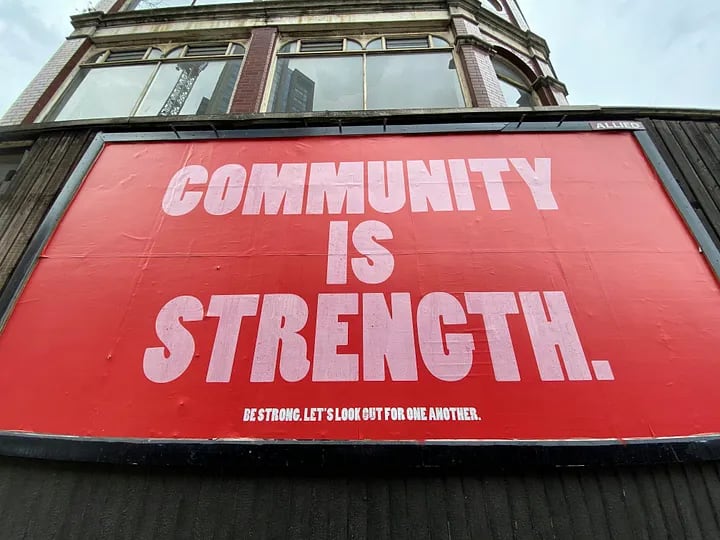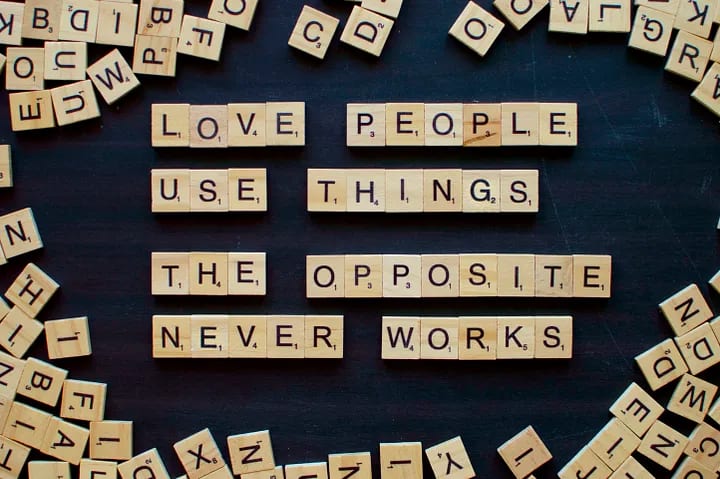Why are we more Depressed than Ever?
The Perils of the Modern World

Globally, an estimated 5% of adults suffer from depression. — W.H.O
I often find myself staring out the window, thinking about the seemingly paradoxical nature of our times. We live in an era of unparalleled connectivity, technological marvels, and endless opportunities, yet more people than ever are grappling with the dark abyss of depression. As someone who has personally walked through the tumultuous waters of major depression and anxiety, I feel compelled to explore this question:
Why are we more depressed than ever?
The Illusion of Connectivity
Every morning, I wake up and reach for my phone, a habit that feels almost instinctual now. Scrolling through social media feeds, I see snapshots of friends’ vacations, career milestones, and perfectly plated meals. It’s as if everyone is living their best life, but deep down, I know this is an illusion. Despite the façade of connectivity, I often feel a gnawing sense of isolation. We are inundated with images and updates, but the depth of our interactions has diminished. Social media creates a superficial connection that leaves us yearning for more authentic, meaningful interactions.
I’ve found myself trapped in this cycle of comparison, where my raw, unfiltered life seems inadequate next to the curated highlights of others. It’s a breeding ground for feelings of inadequacy and loneliness, a constant reminder that our digital age, while bringing us closer in some ways, has also distanced us from genuine human connections.

The Tyranny of Perfection
In the world of social media, perfection is the standard, and anything less feels like failure. I remember the days when I would meticulously edit my photos, crafting the perfect caption to present an idealized version of my life. It was exhausting, a relentless pursuit of an unattainable ideal. The pressure to appear flawless seeps into every aspect of our lives, from our appearances to our achievements. This constant striving for perfection leaves little room for self-compassion and acceptance.
We are bombarded with images of perfect bodies, luxurious lifestyles, and seamless success stories. It’s no wonder we feel like we’re never enough. This relentless pursuit of perfection develops a penetrative sense of inadequacy and self-doubt, as we chase after a mirage that continually eludes us. Almost in our grasp, but never within it.
Economic Pressures and Job Insecurity
The economic landscape we live in today is riddled with uncertainty. I’ve watched friends and family members struggle with insecure employment, juggling multiple jobs to make ends meet. The gig economy, with its promise of flexibility also brings in instability. Stagnating wages and rising living costs create a constant undercurrent of stress and anxiety. The world has become a big mush of hyperinflated commodities, that have bound us to them.
Just like you, I’ve also felt this economic pressure firsthand. The gnawing worry about the future and the endless hustle to secure stability. Financial instability is a relentless source of stress, eroding our mental well-being and breeding constant a sense of helplessness. In a world filled with more things than ever, we feel emptier than ever.
The Collapse of Community
Reflecting on my own experiences, I realize how much we have lost with the collapse of traditional communities. Growing up, I was surrounded by extended family and close-knit neighbors. There was always someone to talk to, someone to lean on. Today, urbanization and the pursuit of our individual, competitive lives have eroded these support structures. We live increasingly isolated lives, often far from family and old friends. We pay the price of so-called ‘progress’ with our humanity.
The sense of community that once provided comfort and belonging has dissipated. In its place, we are left with a void, a lack of support that exacerbates feelings of loneliness and depression. The erosion of community bonds has left many of us without a safety net during times of need; emotional or otherwise.

The Digital Dilemma
Technology has revolutionized our lives, but it has also introduced new stressors. I often find myself overwhelmed by the constant barrage of information and the pressure to be always available. The addiction to screens disrupts sleep patterns and physical activity, both crucial for mental well-being. every time the screens light up, we can’t wait to say, “Yes, Master.”
The digital world, with its incessant notifications and endless scrolling, creates a state of chronic mental exhaustion and fatigue. We are constantly “plugged in,” which can lead to burnout and a sense of being overwhelmed. The pressure to stay updated and responsive to notifications adds to the stress, leaving little room for relaxation and mental recovery. What we invested to liberate us, ended up being a new form of slavery.
The Stigma of Mental Illness
Despite increasing awareness, mental illness still carries a heavy stigma. I know this all too well from my own experiences. Admitting to depression or anxiety feels like exposing a vulnerability, inviting judgment or misunderstanding. This stigma perpetuates a cycle of silence and suffering, preventing individuals from seeking the help they need.
I’ve seen this stigma play out in various forms, from dismissive comments to outright discrimination. It creates an environment where mental health struggles are hidden away, compounding the feelings of isolation and despair. The fear of being judged or misunderstood often keeps people from reaching out for support. Even a single life lost because of this ‘harmful ignorance,’ is a life too many.
The Role of Capitalism
In my writings, I have often talked about how capitalism has morphed into a misguided religion. This relentless pursuit of economic gain often comes at the expense of our well-being. The pressure to constantly achieve and accumulate fosters a chronic state of stress and dissatisfaction. In the iconic words of Chuck Palahniuk (Fight Club),
“We buy things we don’t need, with money we don’t have, to impress people we don’t like!”
I’ve felt the weight of this pressure, the constant drive to succeed and accumulate material wealth. It’s a cycle that leaves little room for genuine contentment. The capitalist framework places undue emphasis on external success, often at the expense of our mental health. We become trapped in a perpetual chase, always seeking more but never finding true fulfillment. To reiterate fight club again,
“The things you used to own, now they own you.”

Existential Crisis
We live in a time of unprecedented existential questioning. Traditional sources of meaning, such as religion, community, and stable careers, are in decline. Our jobs have become so specialized that we are in total disconnect of what real life contributions we are making to this world. This has led to a widespread existential crisis, where people struggle to find purpose and meaning in their day-to-day lives.
I have grappled with these questions myself, pondering the purpose of my existence and the meaning of my life. This existential void can lead to feelings of emptiness and despair, as we search for answers in a world that often feels chaotic and uncertain. The loss of traditional anchors of meaning leaves us adrift, searching for something to ground us. We have become passengers of life, without know where or why we are traveling.
Environmental Stressors
Climate change and environmental degradation add another layer of stress and anxiety which is often dismissed in these conversations. The constant news of environmental disasters and the uncertain future of our planet weigh heavily on many of us. Even if we are not directly affected by planetary catastrophes, all of us have some semblance of empathy which make us feel the pain of others affected by this. This environmental anxiety can exacerbate feelings of helplessness and despair.
I, for one, find myself deeply troubled by the state of our planet, the relentless exploitation of natural resources, and the looming threat of climate change. The responsibility of making sustainable choices and the fear of an uncertain future contribute to my anxiety. It’s a burden that weighs heavily on my mind, adding to the overall sense of despair. I fear that by the time we realize what we’ve done, it might be a time of critical change, but also of implacable regret.
My Journey Through Depression
Fighting my own battles with major depression and anxiety has been fraught with challenges; but also, with lessons and insights. I’ve faced the dark days when getting out of bed felt like an insurmountable task, when the weight of despair seemed unbearable. But through these struggles, I’ve also learned about resilience, self-compassion, and the importance of seeking help.
Therapy, medication, guided meditations, mindfulness exercises, and perspective shifts have been lifelines for me, providing the tools to manage my mental health. The support of my partner has been invaluable, being a beacon of hope during my darkest hours. Through it all, I’ve come to understand that acknowledging and addressing mental health struggles is not a sign of weakness, but a step towards healing.

A Path Forward
Addressing this epidemic of depression requires a multipronged approach. We need to build genuine human connections, create supportive communities, and promote inner peace. Mental health education should be a priority, reducing stigma and encouraging people to seek help. Policies must prioritize well-being over mere economic growth, recognizing the deep impact of societal structures on mental health.
We are at a crossroads. We can begin to create a society that nurtures mental well-being and allows individuals to thrive by understanding and addressing these underlying causes today. The task is challenging, but essential for our collective future. Through resilience, compassion, and systemic change, we can illuminate the path forward, towards a world where mental health is prioritized, and every individual can find peace and fulfillment.
Looking back on my own experiences in the context of broader societal trends, I remain hopeful. We have the capacity to create a more compassionate and supportive world. It begins with recognizing the importance of mental health, challenging the stigmas, and developing a culture of empathy and understanding. Together, we can walk the shadows of modern life and emerge into a brighter, more connected future.
About the Creator
Enjoyed the story? Support the Creator.
Subscribe for free to receive all their stories in your feed. You could also pledge your support or give them a one-off tip, letting them know you appreciate their work.





Comments
There are no comments for this story
Be the first to respond and start the conversation.